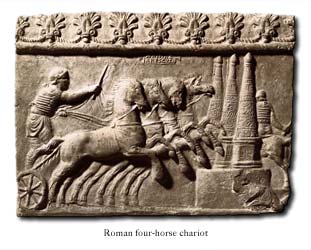


By enforcing an unpopular sex law, Theodosius subordinated the empire to the church. The crowd that tore Butheric to pieces was of indeterminate religion, but the rioters had been evidently far less troubled by homosexuality than their emperor was—at least when it concerned something as important as the games.
Male-male sex had been mostly legal in the Roman world, although powerful cultural norms in Rome (as Greece before it) had long demanded that men of standing take only the active sexual role. Slaves, non-citizens, and other infames such as prostitutes were meant to occupy the passive,
womanly" part. Seneca wrote that losing one's virtue through sexual passivity is "a crime for the free-born" and "a necessity in a slave." The Latin expression for a male being penetrated was muliebria patitur, i.e., "having a woman's experience." The word for "man," vir, was not defined merely by physical characteristics. Rather, it meant a Roman male citizen would never suffer the sexual outrages that were the lot of women and slaves.
Whereas in certain elite strata of Greek society an adolescent boy could maintain a delicate relationship with an older man in which he gave sex in exchange for tutoring and social connections, in Rome it was otherwise. Young male citizens were never supposed to be put in a passive position. One of the few scattered homosexuality laws before Theodosius was a ban on pederasty, but only when it involved upper-class boys. Young male citizens wore amulets in the shape of erections to warn everyone that they were off-limits. It was illegal even to follow freeborn boys around in the street.
A Roman citizen could be excused for breaking the law to protect his manliness. As early as 326 BC, the practice of enslavement as settlement of debt was abolished after a magistrate's son, Titus Ventruius, went broke and was sold to a man who tried to have sex with him. The purchaser had every right to violate Titus, now a slave, but the young man resisted and denounced him to the consuls. The purchaser was then jailed.
Two hundred years later, an army officer and nephew of the famous general and consul Gaius Marius was killed by a soldier he had repeatedly tried to seduce. Under most circumstances, the soldier would have been executed, but Marius honored him instead. To condone his nephew's
intention to use the soldier for pleasure would have transformed the latter's body from an instrument of conquest into something weak—and that Marius could not allow.